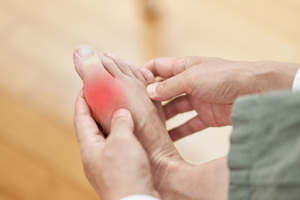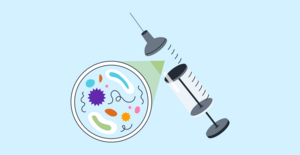Book an STD Test in Durango, CO
Own a clinic? Add your location.
Help patients book appointments with you on Solv. It's free!
2 instant-book locations

Available times on Thursday
Self-pay pricing
Clear self-pay prices
No more surprise bills. Solv is committed to making getting healthcare as easy as buying groceries at the store, including knowing the price of care upfront.

Labcorp
Labcorp
Available times today
Self-pay pricing
Clear self-pay prices
No more surprise bills. Solv is committed to making getting healthcare as easy as buying groceries at the store, including knowing the price of care upfront.
Animas Urgent Care
Animas Urgent Care
Durango Urgent Care, Purgatory
Durango Urgent Care
Flora Vista Water Users
Flora Vista Water Users
Own a clinic? Add your location.
Help patients book appointments with you on Solv. It's free!
Overview of STD Testing in Durango
STD testing is an important part of maintaining sexual health, especially for sexually active individuals in Durango. Many sexually transmitted diseases (STDs) are asymptomatic, meaning they do not show noticeable symptoms, making regular testing essential. People with multiple sexual partners or those who engage in unprotected sex are particularly at risk, but testing is recommended for anyone who is sexually active. STD testing in Durango can detect a range of infections early, allowing for timely treatment and reducing the risk of serious health complications such as infertility, cancer, and the spread of infections to others. Local testing options in Durango often include urgent care centers, primary care providers, community health centers, and at-home test kits.
Who should get tested for STDs?
Anyone who is sexually active, especially those with multiple partners, should consider regular STD testing. Testing is also recommended for individuals who engage in unprotected sex or have symptoms of an STD.
How often should I get tested for STDs?
The CDC recommends annual testing for sexually active individuals, particularly for those under 25, men who have sex with men, and anyone with multiple partners. Frequency may vary based on risk factors.
What should I expect during an STD test?
STD testing usually involves providing a urine sample, blood sample, or swab from the genital area, depending on the type of test. Most tests are quick and painless.
How long does it take to get STD test results?
Test results can take anywhere from a few minutes (for rapid tests) to 7 days, depending on the type of test and the provider. Your healthcare provider will give you a timeframe.
Is STD testing confidential?
Yes, STD testing is confidential. Results are shared only with you and your healthcare provider. Many clinics also offer anonymous testing options.
Types of STD Testing
Chlamydia Testing in Durango
Chlamydia is one of the most common STDs and is often asymptomatic, making regular testing crucial for residents of Durango. Chlamydia testing is recommended for sexually active women under 25, men who have sex with men, and anyone with multiple sexual partners. If left untreated, chlamydia can cause infertility in women and other serious complications.
Chlamydia Testing FAQs in Durango
What is a chlamydia test?
A test that checks for the presence of chlamydia bacteria, usually through a urine sample or a swab test for women, available at various clinics in Durango.
Why do I need a chlamydia test?
Testing helps prevent complications and the spread of the infection, especially for high-risk groups like young women and individuals with multiple partners in Durango.
Can chlamydia go away on its own?
No, chlamydia requires treatment with antibiotics to fully clear the infection. If left untreated, it can lead to complications such as infertility, particularly in women.
Gonorrhea Testing in Durango
Gonorrhea is a bacterial infection that can affect both men and women, leading to serious complications if untreated, such as infertility. Gonorrhea testing is especially recommended for sexually active individuals in Durango with multiple partners or those who do not use condoms consistently.
Gonorrhea Testing FAQs in Durango
Where should I get tested for gonorrhea?
You can get tested at medical labs, primary care providers, and urgent care centers across Durango.
Do I need to be tested for gonorrhea if I don’t have symptoms?
Yes, many people with gonorrhea do not experience symptoms, so regular testing is important to catch the infection early and prevent complications.
How much does gonorrhea testing cost?
Costs vary, but health insurance often covers the test. Many clinics in Durango also offer free or sliding-scale testing.
Herpes Testing in Durango
Herpes is caused by the herpes simplex virus (HSV), with two common types: HSV-1 (oral herpes) and HSV-2 (genital herpes). Getting tested for herpes is recommended for individuals in Durango who have symptoms such as sores or blisters around the mouth or genital area.
Herpes Testing FAQs in Durango
What is a herpes test?
An HSV test detects the presence of the herpes virus, either through a swab test or a blood test, and is available in several clinics throughout Durango.
Why should I get a herpes test?
Testing helps confirm the presence of HSV, which is important for managing outbreaks and preventing transmission in Durango.
Should I get a herpes test if I don’t have any sores?
Yes, a blood test can detect herpes even if you don’t have visible sores. However, the swab test is only effective when sores are present.
HIV Testing in Durango
HIV testing is recommended for everyone aged 13 to 64 at least once in their lifetime, with more frequent testing for high-risk individuals in Durango, such as those with multiple sexual partners or who inject drugs. Early detection of HIV leads to better long-term health outcomes and helps prevent transmission in Durango.
HIV Testing FAQs in Durango
How is HIV tested?
A blood or oral swab test detects antibodies to HIV. Rapid tests available in Durango can provide results in 20 minutes.
Who should get tested for HIV?
Everyone aged 13-64, and more frequently for those with high-risk factors like unprotected sex or sharing needles, should get tested in Durango.
What should I do if I test positive for HIV?
If you test positive for HIV, follow up with a healthcare provider immediately to discuss treatment options, which can help manage the virus and reduce the risk of transmission.
Human Papillomavirus (HPV) Testing in Durango
HPV is a common STD linked to genital warts and several types of cancer, including cervical cancer. Testing is recommended for women aged 21-65 in Durango as part of routine cervical cancer screenings.
HPV Testing FAQs in Durango
What is an HPV test?
An HPV test detects the presence of high-risk HPV strains that can cause cervical cancer, often through a DNA test of cervical cells, and is available at testing centers in Durango.
Who should get tested for HPV?
Sexually active women aged 21-65 and anyone with abnormal cervical screening results should get tested in Durango.
What are the next steps after a positive HPV test?
Positive results may require follow-up testing or treatment, such as further evaluation of cervical health, with options available in Durango.
Syphilis Testing in Durango
Syphilis is a serious bacterial infection that can cause long-term complications if untreated, including damage to the heart and brain. Regular syphilis testing is essential for those at higher risk in Durango, such as men who have sex with men or individuals with multiple sexual partners.
Syphilis Testing FAQs in Durango
Where can I get tested for syphilis?
You can get tested at urgent care centers, medical labs, or through your primary care provider in Durango.
What is the cost of syphilis testing?
Costs vary, but many health insurance plans cover the test. Community health centers in Durango may even offer free or low-cost options.
Do I need to get tested for syphilis more than once?
Yes, if you’re at high risk (multiple partners, unprotected sex), regular testing is recommended. Even after treatment, you can become reinfected with syphilis.
Trichomoniasis Testing in Durango
Trichomoniasis (or “trich”) is caused by a parasite and often has no symptoms, especially in men. Trich testing is recommended for anyone in Durango experiencing symptoms or those at high risk due to unprotected sex or multiple partners.
Trichomoniasis Testing FAQs in Durango
How is trichomoniasis tested?
Testing typically involves a urine sample or a swab from the affected area, available at clinics in Durango.
Who should get tested for trichomoniasis?
Anyone with symptoms or at higher risk due to unprotected sex or multiple partners should get tested in Durango.
Can trichomoniasis be cured with medication?
Yes, trichomoniasis is easily treated with antibiotics, typically metronidazole or tinidazole. It’s important for both partners to be treated to prevent reinfection.

Updated on Sep 25, 2025
Solv has strict sourcing guidelines and relies on peer-reviewed studies, academic research institutions, and medical associations. We avoid using tertiary references.
Related Searches
A1C Test in Durango
Allergy Testing in Durango
Basic Metabolic Panel in Durango
CMP Test in Durango
Diabetes Test in Durango
Diagnostic Test in Durango
Glucose Test in Durango
H Pylori Test in Durango
Lab Tests in Durango
Mono Test in Durango
Pregnancy Test in Durango
Pulmonary Function Test in Durango
RSV Test in Durango
STD Testing in Durango
Strep Test in Durango
TB Test in Durango
Thyroid Test in Durango
Vitamin D Test in Durango
Aetna Urgent Care
Blue Cross Blue Shield Urgent Care
Cigna Urgent Care
COVID-19
Flu
United Health Urgent Care
» All services in DurangoEveryday Healthcare, Simplified
Expert advice to help you live your best life







